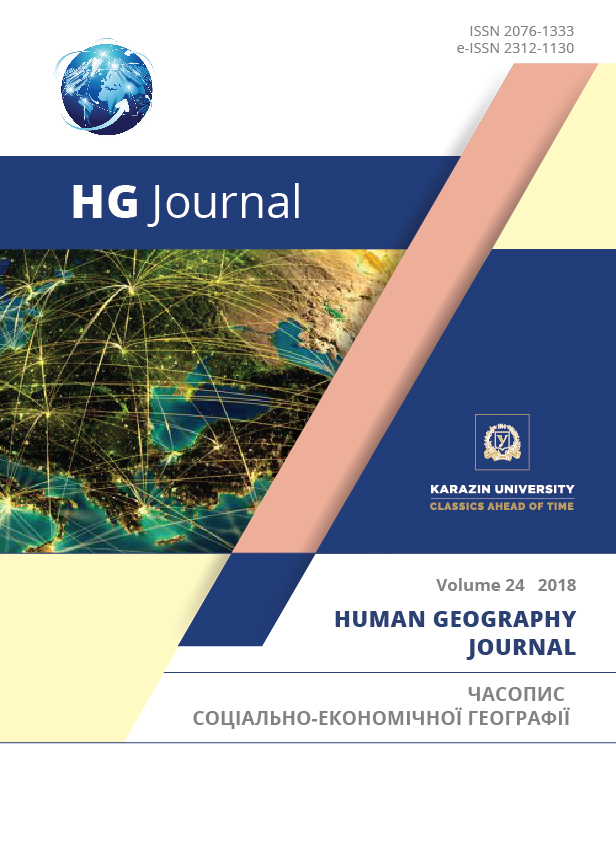Екологічна парадигма міст в епоху пост-Брундтланд: проблеми збереження історичних міських ландшафтів як живих міст
Анотація
Стійкість є нагальним і складним завданням для урбаністів. Основна увага у його розв’язанні приділяється більш широким питанням навколишнього середовища і суспільства, розширюючи тим самим концепцію, визначену в доповіді Брундтланд. Еко-місто, екологічний слід, зелене будівництво і культурне планування є одними із значних ініціатив, викликаних реінкарнацією сталого розвитку доповіді Брундтланд. Перевіривши типи спільного існування природи і культури, ми спробували підкреслити значення суспільства у визначенні місць для сталого розвитку. Перша адміністративна столиця Шрі-Ланки, місто всесвітньої спадщини Анурадхапура, була побудована як політичний релігійний поліс. Важливість цього міста визначається його географічним положенням, розвиненою річковою цивілізацією та іншими чинниками, які були встановлені. Захист центру міста як мертвого пам'ятника, орієнтованого на один культурний шар, підриває його багатокультурне значення. Це перетворення багатокультурного місця у монокультурний простір виснажило його придатність для життя і не є стійким. Виявивши, як ці примусові цінності оскаржують життєздатність міста, було використано еко-містобудування та культурне планування, щоб відновити життєздатність королівського парку міста. Наш план відновлення, заснований на соціально-культурній концепції еко-міста, не тільки зміцнив стійкість міста, а й підготував підґрунтя для еко-суспільства.
Завантаження
Посилання
Berleant, Arnold (2000). ‘The Wilderness City: An Essay on Metaphorical Experience’ in Place and location Kaija Lehari & Virve Sarpik (eds.), Tallinn: Academy of Arts.
Edmonson, Susey (2008). Ten Tips for Producing top quality research, Boston: Pearson Allyn & Bacon.
Ellawela, H. (1969). Social History of Early Ceylon, Colombo: Department of Cultural Affairs.
Evans, Gaeme (2001), Cultural Planning: An Urban Renaissance, London & New York: Routledge.
Greed, Clara H. (ed.) (1999). Social Town Planning, London & New York: Routledge.
Habermas, Jurgen (1987). The Theory of Communicative Action: The Critique of Functionalist Reason, Cambridge: Polity Press.
Harvey, David (2000). Spaces of Hope Edinburgh: Edinburgh University Press.
Jensen-Verbeke (1995). ‘Involving People’ in Historic Cities and Sustainable Tourism, Conference proceedings, Bath pp. 39-51.
Larice, Michael, and MacDonald, Elizabeth (eds.) (2007). The Urban Design Reader, New York: Routlegde.
Lefebvre, Henry (1996). Writing on Cities, trans. & ed. by Eleonore Kofman & Elizabeth Lebas, Oxford: Blackwell.
Mumford, Lewis (1938). The Culture of Cities, New York: Harcourt Brace.
Munasinghe, Harsha (1991). Transformation of Colonial Urban Space in Sri Lanka, Helsinki: Helsinki University of Technology.
Munasinghe, Harsha (2001). Aesthetics of Urban Space through Collaborative Urban Planning’ in Built Environment 3/01.
Munasinghe, Harsha (2004). ‘Ecological Housing in Helsinki: Case study of Viikki’, Sri Lanka Architect, Journal of Sri Lanka Institute of Architects, 4/2004.
PLACE 3 (1997). Centre for Excellence for Sustainable Development, US Department of Energy.
Scott, A. (2000). The Cultural Economy of Cities, London: Sage.
Sennette, Richard (1994). Flesh and Stone: The Body and The City in Western Civilization, New York: Norton.
Thompson, John B. (1970). Ideology and Modern Culture: Critical Social Theory in the era of Mass Communication, Cambridge: Polity Press.
Wijedasa, K.H.J. (1994). Towards Sustainable Growth: The Sri Lanka Experience, Colombo: Central Environmental Authority.
Цитування
Proclaiming Colonial Urban Heritage: Towards an Inclusive Heritage-interpretation for Colombo’s Past
Munasinghe Harsha (2021) Journal of Contemporary Urban Affairs
Crossref
Авторське право (c) 2018 Munasinghe H.

Цю роботу ліцензовано за Міжнародня ліцензія Creative Commons Attribution 4.0.




